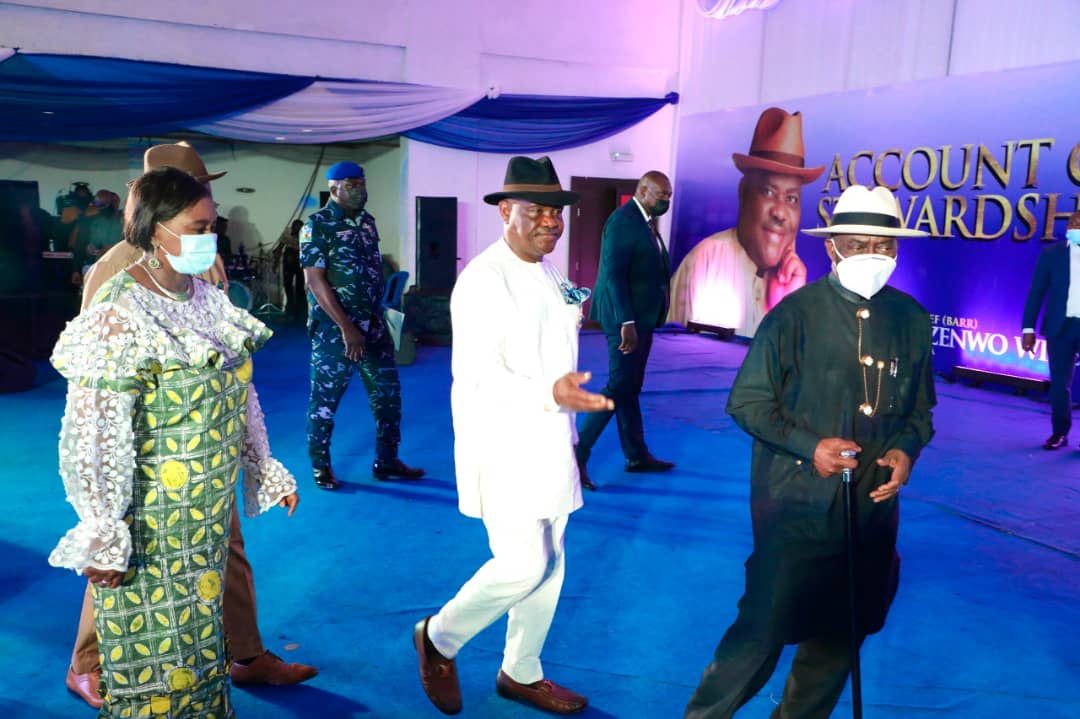Editorial
In Support Of Southern Governors

For the second time in two months, Governors of the Southern states in Nigeria under the aegis of the Southern Governors’ Forum met at the Lagos State Government House in Ikeja, on Monday, July 5, 2021.
The meeting, which was a follow-up of the previous one that held at the Delta State Government House, Asaba, again reviewed ongoing security, socio-economic and political situation, including some other recent developments in the country.
In a communique read by the chairman of the Forum and Governor of Ondo State, Rotimi Akeredolu, the governors, among others, re-affirmed their commitment to the unity of Nigeria on the pillars of equity, fairness, justice, progress and peaceful co-existence between and amongst its people.
“The forum reiterates its commitment to the politics of equity, fairness and unanimously agrees that the position of President should be rotated between Southern and Northern Nigeria and resolved that the next President of Nigeria should emerge from the South.
“The forum reviewed the security situation in the country and commends security operatives for their relentless efforts in restoring security and safety, and commiserates with families and loved ones of those who have fallen in the line of duty; re-emphasised the need for State Police; … set a timeline of Wednesday, 1st September, 2021 for the promulgation of the anti-open grazing law in all member states …”
The Tide wholeheartedly supports the well thought-out, well intended, well considered and fittingly articulated position of the Southern Governors’ Forum. We also salute the patriotic zeal, the nationalistic fervour and the courage demonstrated by the forum in rising above partisan, sectional and other divisive sentiments and interests and taking an altruistic stand for the overriding benefit of the survival and sustainable development of the nation.
Rotational presidency may not be the ideal proposition, but in a nation like ours that is grappling with giving every critical stakeholder federating units a sense of belonging and equitable consideration in the management of the commonwealth, an effective, convenient and practical arrangement that guarantees equal opportunity for all to occupy the top management position of the affairs of the country remains the best guarantee against the raging political tension, ethnic and increasing separatist agitations occasioned by unaddressed sense of exclusion or marginalisation in the country.
To this end, we urge the Southern Governors Forum to take the message to their various political platforms and escalate the campaign for a more inclusive federation that strengthens the bond of unity and engenders mutual trust and shared destiny in everyone at all times.
Beyond releasing statements and issuing communiques, the Governors must devise creative means of reaching out and engaging their Northern counterparts to realise their objectives without increasing the already charged socio-political atmosphere in the country. Deliberate and concerted efforts must be made to lobby and entreat political parties in the country to zone the 2023 presidential ticket to the Southern part of the country with a commitment to do the same for the North subsequently.
The time has come to put an end to mere rhetorics concerning our desire, effort and commitment to the unity, peaceful co-existence, economic development, social harmony and assured progressive destiny of the Nigerian nation. It is time for practical positive actions to be undertaken to build the strong, virile, egalitarian, just and equitable nation that accommodates all.
We, therefore, urge other governors, all political stakeholders and everyone else that is interested in seeing the Nigerian project succeed, not least of all the Northern Governors’ Forum, the Northern Elders Forum and other influential individuals and groups in the North to support, assist, endorse and champion the Southern Governors’ Forum’s proposition as a standard template that governs political activities in the country.
To this end, the issue of restructuring the Nigerian federation must be pursued with all the seriousness that it deserves without further delay. Our country needs to make haste in this direction before it gets too late or becomes too expensive to attend to. As they say, a stitch in time saves nine.
No effort should be spared to make Nigeria a society that is free for all; a society that is just for all; a society that is fair for all. There is no better way to ensure that Nigeria remains united, stable and prosperous.
Editorial
Sustaining OBALGA’s Ban On Street Trading

Editorial
AFCON ’25: Bravo, Super Eagles, But…

Editorial
Fubara: Celebrating A Leader At 51

-

 Sports4 days ago
Sports4 days agoArsenal Women End Man City’s Invincibility
-

 Sports4 days ago
Sports4 days agoU-20 WWC: Falconets claim qualifier win
-

 Sports4 days ago
Sports4 days agoInsurance Deepen Enyimba’s Trouble
-

 Sports4 days ago
Sports4 days agoYouth Olympics preparation Gears up
-

 Sports4 days ago
Sports4 days agoCologne Youth Team Set Crowd Record
-

 Sports5 days ago
Sports5 days agoTornadoes Set For NPFL exit over Stadium Ban
-

 Sports4 days ago
Sports4 days agoBarca Pull Out Of Super League Project
-

 Sports4 days ago
Sports4 days agoPalmer Stars As Chelsea Compound Wolves Woes

